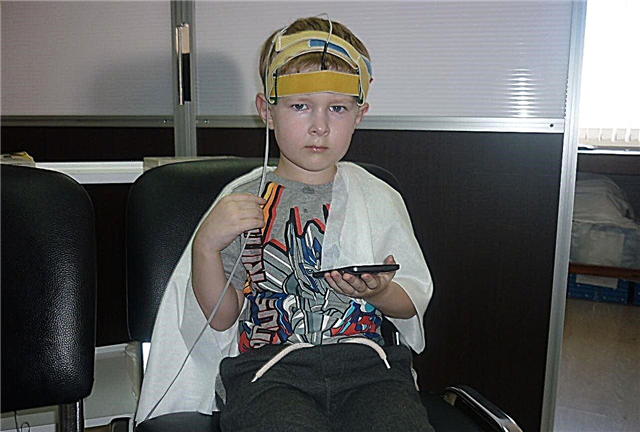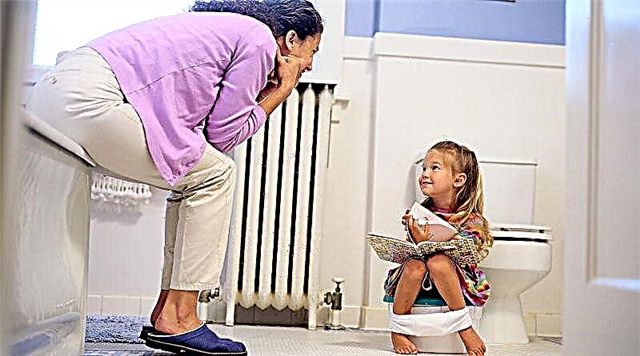The common phrase "sleeping like a baby" for many parents conjures up images of a peacefully sleeping newborn. However, babies twitch, emit gurgling sounds, stop breathing, move their arms and scream in their sleep. This behavior is normal, and the twitching is most likely the result of REM sleep or a spontaneous Moro reflex.
Why do children flinch in their sleep?
Twitching is a sudden involuntary movement that occurs at any time, including when a child is deeply asleep.
Why does a newborn flinch in a dream?
1. Phase of REM sleep
What happens if a newborn baby flinches during sleep? Babies dream just like adults, which means they also have REM sleep, or rapid eye movement during the dream cycle. During REM sleep, the newborn's face will tremble. He is also likely to breathe irregularly, snort, whimper, and jerk his arms and legs. Don't worry, babies get shorter REM sleep as they age.
According to the research data, the order will change in about 2 - 3 months. As the child grows older, he will go through other phases of sleep before entering the fast phase. As the child grows older, the amount of REM sleep decreases and the sleep becomes restful. At age 3, children spend a third of the night in slow-wave sleep.
The reason for consulting with a specialist is a situation when the baby wakes up more than 10 times and looks scared.
2. Reflex Moro
 The Moro reflex is another reason why a newborn shudders in a dream. Babies are born with a set of reflexes, but this one is the most disturbing manifestation for new parents. When the baby shudders in sleep or feels that it is falling, it throws its arms aside with a sudden jerk and, possibly, screams.
The Moro reflex is another reason why a newborn shudders in a dream. Babies are born with a set of reflexes, but this one is the most disturbing manifestation for new parents. When the baby shudders in sleep or feels that it is falling, it throws its arms aside with a sudden jerk and, possibly, screams.
Like many other reflexes, the Moro reflex is a built-in survival mechanism designed to protect a vulnerable newborn. And this is a primitive attempt to restore a tangible loss of balance. Again, don't be alarmed if you see your child suddenly flinch and throw up their arms while sleeping.
3. Pain
With colic or teething, the child twitches in a dream due to recurrent pain.
4. Noise
This is another factor why the newborn twitches during sleep. A loud sound can scare and wake up a baby.
But you do not need to observe absolute silence for crumbs to sleep. There are sounds that are familiar to a baby - rustles, the hum of a washing machine, the quiet voice of mom or dad, the sound of water, and others.
Sometimes from the street there is a sharp sound of a siren or the sound of a falling object. Such a noise is unusual and new to the baby, because of this, the baby shudders sharply. Even after some time, when, as it seems, the fear is forgotten, the child shudders in a dream due to the excitation of the nervous system.
5. Temperature conditions
During sleep, the infant twitches and tosses and turns when it is stuffy. The crumb is irritated and provokes discomfort, stuffy or musty air in the bedroom.
6. Inconvenient posture
Probably, the baby is not comfortable sleeping in the position in which his parents put him. The kid shudders and starts spinning in search of a comfortable position.
7. Feelings of insecurity
Some pediatric doctors gave the first three-month stage of a baby's life the name "4th trimester of pregnancy" and advise to recreate conditions for the baby that mimic prenatal conditions as much as possible. This will give the baby a sense of protection and deep sleep.
The sleep flinching described above is normal and does not require treatment.
However, there are times when a child shudders in a dream due to various diseases.
Why does the child flinch? Pathological causes

The baby's convulsive rhythmic movements that continue throughout sleep, combined with screaming and crying, are signs of a health problem. Parents who find these manifestations should go to the doctor with a baby as soon as possible.
- Disorder of metabolism. The central nervous system of the baby stabilizes gradually, so it is still difficult for his body to carry out certain metabolic processes.
Remember that a possible discrepancy in the amount of food for the child's physical activity leads to metabolic disorders, which causes a shortage or, conversely, an excess of certain elements. All this leads to diseases, the symptoms of which are cramps, muscle spasms. It can be spasmophilia or anemia.
- Lack of calcium. When a baby does not eat properly and the body lacks calcium and vitamin D, rickets develops, a disease that causes changes in the structures of the skeleton. Outwardly, the body seems to be twisted. Problems in the functioning of the nervous system may appear.
- High intracranial pressure. Sleep disorder is one of the symptoms of increased intracranial pressure. This pathology can occur as a result of trauma at birth. Also, the cause may be brain cancer.
- Syndrome of increased neuro-reflex excitability (SPNRV) - the result of a malfunction of the central nervous system. For this reason, the infant flinches frequently. This diagnosis is most often given to children with a birth injury.
If the disease is not detected in time, this will lead to inattention, restlessness, and slovenliness of the child in the future. Memory lapses are also possible.
Recommendations for organizing restful sleep in a newborn
- ventilate the bedroom every day before putting your baby to bed;
- even in severe frost in the nursery, open the window for 5 - 10 minutes;
- install a thermometer in the bedroom and control the temperature. It should not exceed 18-21 ° С;
- do not wrap up the crumb. Dress your child in high-quality warm pajamas made from natural fabric, and do not cover them with several blankets;
- the crib must be placed as far as possible from the battery and heaters;
- experiment by laying the baby on its side or on its back to choose the most comfortable position;
- change the position of the sleeping baby every three hours, if he has not done it himself. For example, turn your head the other way;
- remove all unnecessary from the bed;
- dose the activity while awake. For 1.5 - 2 hours before going to bed, go to quiet activities;
- give your baby a relaxing bath before bed;
- give a gentle massage. This will help the child relax;
- in the children's bedroom during laying, eliminate extraneous movements and loud conversations. A quiet environment will help the baby fall asleep sooner;
- swaddling the baby for the night will recreate his intrauterine sensations;
- you can use a special case with a zipper. In it, the baby will not jerk his hands and will not frighten himself.
Weak and short-term twitching at night is not dangerous, this is considered normal behavior in infants. Experts argue that the crumbs of the brain are still immature and the mechanisms of excitation prevail over inhibitory reactions. Therefore, parents should not panic. They need to provide the most comfortable conditions for a sound baby sleep.
If the infant's sleep anxiety persists and even after providing comfortable conditions - the child does not sleep well and constantly wakes up, it is worth contacting a doctor. If there is a disease, the necessary measures will be prescribed.
Thus, babies can have prolonged dreams and bizarre reflexes during sleep. Babies make a lot of strange sounds while they sleep. They will gurgle, breathe quickly, stop breathing for as long as 10 seconds, whimper, scream, whistle, and breathe in a rattling sound if the nose is stuffy. This is completely normal.
Article rating:



